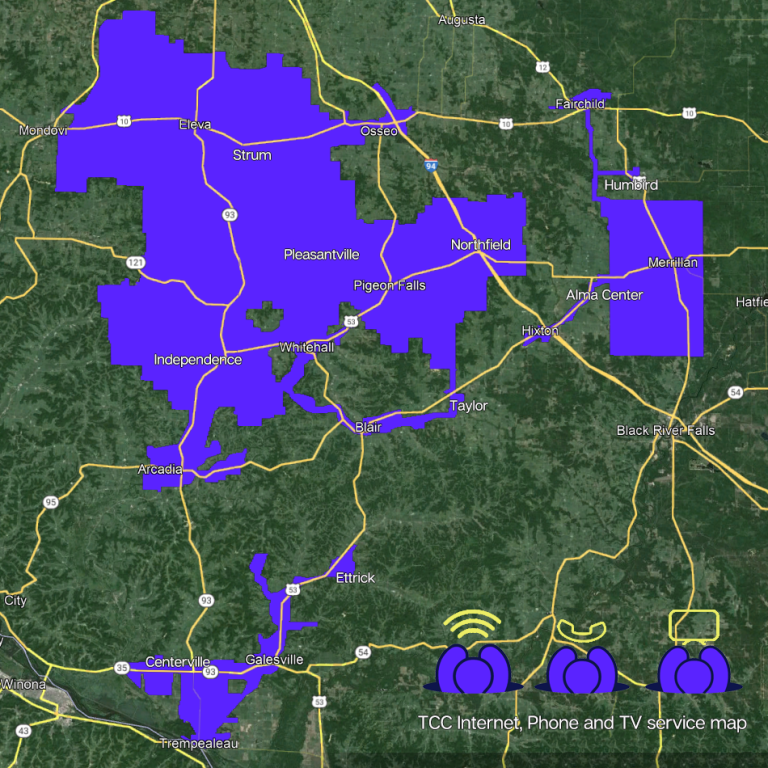Meet TCC
Everything about us is a little bit extra!


Our Mission
The Tri-County Telephone Cooperative was formed in 1962 with one clear mission: to keep our community well-connected. On March 1, 1966, 180 TCC members started using their new one-party dial service – the very first in the state of Wisconsin – and the rest is history.
Today, we provide state-of-the-art Internet, TV, and Phone services to an area that's 25 communities strong across five counties, spanning approximately 550 square miles. Our network is fiber-rich and officially certified as Gig Capable by the NTCA, delivering speeds of up to 1 Gigabit per second. And our members are neighbors, friends, and the businesses that help support us all.
Our dedication to providing impeccably reliable telecommunications infrastructure along with our exceptional community support has helped our area earn a Smart Rural Community designation. It's also what we promise to deliver well into the future, whatever that might bring.
TCC Timeline
Choose a year to read more or use the arrows to scroll through the timeline.
TCC Membership
TCC is a cooperative and all of our customers are members. Membership entitles you to be actively involved in your cooperative and its business, a part of an organization that is very supportive of the local communities they serve, and a recipient of Capital Credits determined by the Board of Directors. There is no charge for cooperative membership.
What's a cooperative?
We are a Smart Rural Community
TCC was honored with the Smart Rural Community Showcase Award by NTCA – The Rural Broadband Association, which cited TCC’s advanced communication services and collaboration with local leaders in education, health care, agriculture and business.















